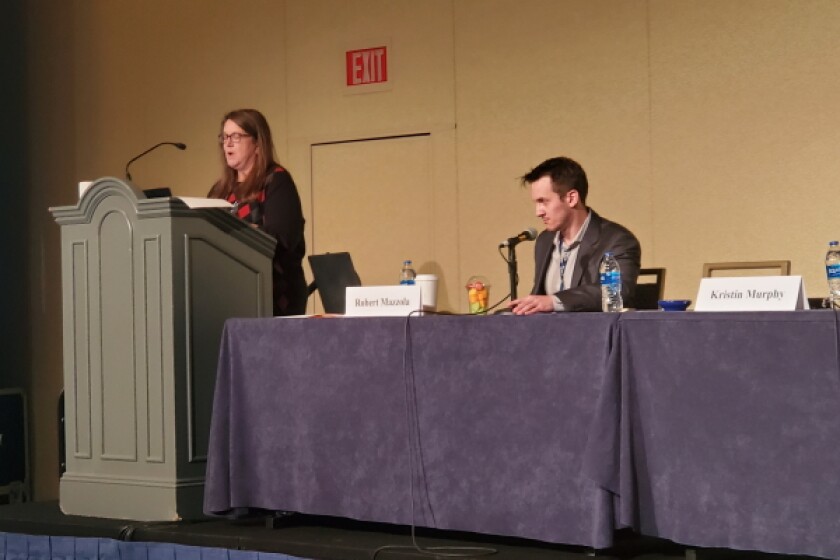Patent counsel should think about exhaustion law during prosecution and how it might apply to their clients’ products, a panel told delegates at the AIPLA 2021 Annual Meeting on Friday, October 29.
Panellists Kristin Murphy, lead divisional intellectual property counsel at technology company ZF Group in Michigan, Yar Chaikovsky, global co-chair of the IP practice at Paul Hastings in Palo Alto, and Robert Mazzola, IP counsel at Pied Parker in San Francisco, delved into exhaustion during the first panel of the day.
“Exhaustion is definitely relevant to prosecution in that you have to define each patent as its own standalone property right, so to speak,” said Murphy.
“If you have a whole system that’s working together, such as a surgical system, there will be a device itself and the capital equipment that the device connects to.
“The reaction might be to claim the whole system because that’s what the client is planning to sell. But the reality is you need to think beyond that from the standpoint of where the client is going to make money,” she said.
She added that the money will be made on the sale of the disposable product. Most capital equipment, she pointed out, is essentially given away for free, and the focus should be on the disposable device for that reason.
Counsel should look at the disposable device itself, said Murphy, noting that most will be one-use devices but that some could be enclaved and re-used at a later time.
“Even though these items are supposed to be one-use, doctors will try and save money by figuring out which components can be saved and reconditioned.
She added: “What parts are unique enough that your competitors will try and make sure your device is compatible with the capital equipment being saved? Think about that and also the ancillary add-ons to the device.”
The doctrine of patent exhaustion in the US sets out that once a patent owner has sold a product for the first time, they no longer have control over it.
Exhaustive survey
Mazzola at Pied Piper told delegates about survey results his firm had collected from 20 practitioners, 18 of whom did patent drafting and all but one of whom had been involved in licensing negotiations for their clients.
It showed that half of respondents considered exhaustion when drafting claims.
“Only one participant said he didn’t know how exhaustion was relevant to patent prosecution at all,” said Mazzola.
On the licensing side, the survey showed that only two out of 20 (10%) of those polled didn’t make their clients aware of patent exhaustion. When asked if they were concerned about patent exhaustion and products being resold, around half of those surveyed said yes.
Approximately a quarter said they were very concerned by exhaustion and reselling. Most were also concerned with exhaustion in the US compared with abroad.
Seven out of 20 respondents said exhaustion was a serious concern in the negotiation of a patent licence.
“They said that when they’re in the negotiation room, exhaustion can become a sticking point,” said Mazzola.
Exhaustion is clearly already an important consideration for a lot of attorneys – but perhaps one that more counsel need to think about more often.











